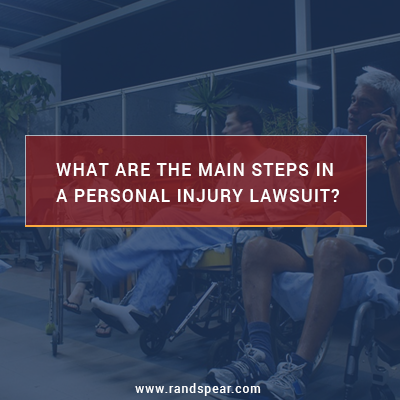CAN I FILE A LAWSUIT IF I SIGNED A WAIVER?
Many businesses have made waiver agreements a part of their daily customer interactions. Businesses that make signing a waiver mandatory include sports leagues, theme parks, and medical centers. Waivers contain agreements that limit a customer’s ability to file a lawsuit after an injury. While signing the waiver reduces an injured party’s legal options, it does not always prevent you from filing a personal injury claim. Our Spear Greenfield legal team consistently receives the question, “Can I sue if I signed a waiver?” Unfortunately, waivers can mislead a personal injury victim into not exploring their legal options, because they think signing the waiver eliminates all legal options.

WHAT IS A WAIVER?
Prior to doing an activity or starting a medical procedure, a waiver is usually provided to the participant. This legal document ensures the inherent risks of the service provided are communicated. Also, a waiver contains a form to sign that the business may not be held responsible if injuries or damages are suffered. Simply explained, a waiver is a legal document between a customer and a service provider.
According to FindLaw.com, a release agreement can use language to indicate that the person signing the agreement has “assumed the risk” of injury. By signing the waiver, you verify that you read the risks and relinquish your right to sue for personal injury. A waiver signature is not optional to participate in certain activities or proceed with a medical procedure. Most liability waivers include multiple terms to cover various legal avenues to a lawsuit.
CAN YOU SUE AFTER SIGNING A WAIVER?
When asking the question, “can you sue if you sign a waiver or a release”, many people make the false assumption that they have no legal options. A waiver does not stop a personal injury victim from taking legal action in every instance. Since waivers need to meet the general requirements of legal documents, one situation where a waiver may be found invalid is if the legal document has deficiencies. Waivers, like all legal documents, generally need to be clear, specific, and concrete. This means the waiver text cannot be ambiguous, unreadable, unspecific, or hard to understand.
Another situation where a waiver may be invalid is if a separate party, not protected by the legal document, caused your injuries. These cases are generally complex. One example of this would be pursuing a product liability lawsuit instead of suing the company that provided you the service. If the service used a product that turned out to be defective and caused your injury, you may be able to sue the manufacturer of that product.
Other instances can deem a waiver is invalid as well. If the legal document was signed by a minor, a child under the age of 18, a waiver would not hold up. If the company providing you the service practiced gross negligence, the waiver could be invalid. According to Cornell Law School, gross negligence is defined as “a lack of care that demonstrates reckless disregard for the safety or lives of others, which is so great it appears to be a conscious violation of other people’s rights to safety.”

SHOULD I SIGN A WAIVER?
Prior to making a decision to sign a waiver, you should always carefully read the agreement. While this tip may seem like common sense, the signature on a waiver may be mandatory prior to participating in an event or using a service. This pressure sometimes causes people to rush and sign a waiver without reading the text or understanding the terms.
Another factor to consider prior to signing a waiver is determining a business’s purpose to require a signature. Generally there are two reasons to require a legal document prior to starting an activity or receiving a service. First, a waiver can act as a business’s official warning of potential risks. Second, a waiver allows a business to forgo responsibility for injuries that occur from ordinary negligence. If you are concerned about a business’s intentions for making you sign a waiver, you should consider not moving forward.

LEGAL CONSULTATIONS ARE ALWAYS THE BEST OPTIONS
Even if you signed a waiver prior to suffering a personal injury at a business, you still have legal options. Immediately following your personal injury accident, scheduling a legal consultation is a critical step! At Spear Greenfield, our consultations are free, so exploring your legal options after signing a waiver is risk free. Also, Rand Spear and the Spear Greenfield team offer over 200 years of experience. Experience is key when assessing a personal injury claim. Don’t settle for the rest. Trust one of the best by reaching out to Spear Greenfield for your questions related to legal documents.
Call or text (215) 985-2424 or complete a Free Case Evaluation form












